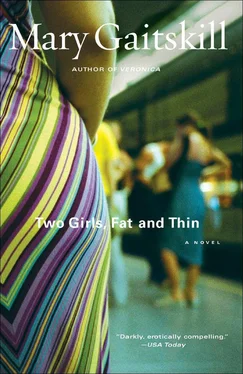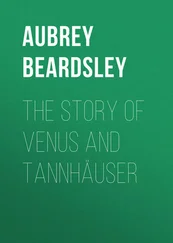Mary Gaitskill - Two Girls, Fat and Thin
Здесь есть возможность читать онлайн «Mary Gaitskill - Two Girls, Fat and Thin» весь текст электронной книги совершенно бесплатно (целиком полную версию без сокращений). В некоторых случаях можно слушать аудио, скачать через торрент в формате fb2 и присутствует краткое содержание. Год выпуска: 2012, Издательство: Simon & Schuster, Жанр: Современная проза, на английском языке. Описание произведения, (предисловие) а так же отзывы посетителей доступны на портале библиотеки ЛибКат.
- Название:Two Girls, Fat and Thin
- Автор:
- Издательство:Simon & Schuster
- Жанр:
- Год:2012
- ISBN:нет данных
- Рейтинг книги:5 / 5. Голосов: 1
-
Избранное:Добавить в избранное
- Отзывы:
-
Ваша оценка:
- 100
- 1
- 2
- 3
- 4
- 5
Two Girls, Fat and Thin: краткое содержание, описание и аннотация
Предлагаем к чтению аннотацию, описание, краткое содержание или предисловие (зависит от того, что написал сам автор книги «Two Girls, Fat and Thin»). Если вы не нашли необходимую информацию о книге — напишите в комментариях, мы постараемся отыскать её.
Review) create a haunting and unforgettable journey into the dark side of contemporary life and the deepest recesses of the soul.
Two Girls, Fat and Thin — читать онлайн бесплатно полную книгу (весь текст) целиком
Ниже представлен текст книги, разбитый по страницам. Система сохранения места последней прочитанной страницы, позволяет с удобством читать онлайн бесплатно книгу «Two Girls, Fat and Thin», без необходимости каждый раз заново искать на чём Вы остановились. Поставьте закладку, и сможете в любой момент перейти на страницу, на которой закончили чтение.
Интервал:
Закладка:
The scene becomes static, frozen in flat subreality, a torn grainy photograph of my own stunned face. He is on top of me for several moments, breathing. He swings himself into a sitting position on the edge of my bed and sits there, both hands flat on the mattress. He seems to have forgotten about the glop he’s left on my body. My held breath is an obstruction in my throat. My feet feel cold and far away. I watch him from my side-turned head. He clears his throat and sits in a hunched, unassuming position, as though puzzled by something. He turns, bends forward and kisses the back of my head. “Good night,” he says. “Sleep tight.” Then he leaves the room, closing the door carefully behind him.
I became conscious again as I sat in study hall the next day before a pile of books. My French book, a faded green thing with a broken spine, lay open before me, ignored. I was listening to the group of small, slender girls in bright dresses and paisley tights. Sally Rose was talking about how she let Chris Hannewald “finger” her, and Emma Contrell was saying she’d go all the way with Todd Welsh any time. I felt stupefied to think that I’d done the things they coyly talked about. Yet it was nothing like what they were talking about. An invisible square of definition formed around the circle of girls; another square formed around me. I imagined myself sealed in an enclosure of darkness that could be seen into but not out of, only in my imagination I was a tall, beautiful woman with waist-length raven hair. I was a space traveler sent on a dangerous mission and captured on a hostile planet. I was condemned to eternity in the impenetrable enclosure that would drift through space until I floated out of my solar system and into a black dimension. Space travelers would tell stories about the legend of the beautiful lady trapped in the impenetrable column. Those who had actually seen me could barely refrain from weeping at the sight of my beautiful face, frozen and transfigured by pain.
“No really,” said little Emma. “I’d suck his thing, prob’ly.”
I read 1984, by George Orwell . I read it voluptuously, loving the pitiless description of a panicked fat man weeping as he vainly tried to escape machine-gun fire, of a terrified woman trying to protect a doomed child with her body, of the toothless old whore that Winston had mistaken for a pretty child-harlot. It wasn’t the brutality I loved, it was the bravado in Orwell’s monotonous treatment of horror, and the pathetic human efforts to stand against it, or even to believe in the existence of something else. The outburst of humanity between Winston and Julia was a feeble blow against the malign forces of Big Brother, beautiful only in the moment it dared to come into being before crumpling and dying like a leaf. The unbeautiful monotony of Orwell’s prose was like Winston’s affair with Julia: a slight, spare poem pitching itself against the horror it evoked, and dying in the attempt.
I read planted on the couch in the living room, oblivious to the televised news, or crouched at the dining room table after dinner, eating a teacupful of sherbet, or in my bed under the blankets, a bag of corn curls at my side.
“Do you understand what it is you’re reading?” asked my father. “Can you give me a plot summary?”
“It’s about a totalitarian government — a communist government — that’s taken over the world, and that controls everyone’s minds. And there’s two people — who represent individual freedom — who are fighting it.”
“That’s pretty good. You have better comprehension than a lot of adults.” He looked out the window, frowning, pressing the tips of his fingers together. “It’s a very important book, 1984 . It’s a warning about what could happen if we don’t keep the destructive bastards out.”
As soon as I finished it, I began reading it again, from the beginning.
A song began playing on my transistor radio called “Love Is All Around,” by the Troggs. “It’s written on the wind,” sang the Troggs, “It’s everywhere we go. So if you really love me, come on and let it show.” A slur of violins and guitars undulated around the words. It spoke to me of hopeless passion fluttering on a wind that would bear it to its death. I bought the 45 with its pale blue label and played it over and over again on my little plastic record player. “Why do you play that record so much, honey?” asked my mother. We stood by the kitchen sink, me peeling carrots while my mother scrubbed potatoes. “Don’t you get tired of it?”
“It reminds me of Winston and Julia,” I said. “In 1984 .”
“But why? Love wasn’t all around them.”
I couldn’t explain it.
I could hear my father in the dining room, shifting in his chair.
I sat behind an invisible shield while a classmate, possibly classmates, threw spitballs at me during intervals of lapsed teacher attention. Dozens of tiny white balls lay about my chair, like the seedlings for a field of white poppies. I thought of Hate Week. “You gave your promise to me and I gave mine to you,” sang the Troggs. Of course, Winston had broken his promise to Julia, and she had broken hers to him. But I believed that under the destroyed integrity, the broken bones and humiliated character, the ghost of love flitted amid the ruins, moving from broken pillar to broken pillar, hiding behind a pile of rubble. On some deep, unfathomable level, where the pressure would burst human lungs and flatten three-dimensional bodies, where life took the form of eyeless, headless creatures with wobbling tentacles and undulating hammerlike tails, their love survived, faithful, luminous and totally useless.
My ear stung. Someone had shot a rubber band at me.
My mother wanted me to make lists of the things that made me happy and the things that made me unhappy. On the happy list I put “reading in bed,” “talking to Donna,” “lime sherbet,” “watching horror movies,” and “George Orwell.” On the unhappy list I put “walking to school from the car,” “gym class,” “study hall,” “dinnertime,” “going to bed,” “getting up in the morning.” My mother took the list and tacked it up on the inside of a cabinet door, along with newspaper recipes, a grocery list, and a reminder to call Dr. Adams.
You are an argument for abortion,” said my father. “If I had known you were going to happen, I never would’ve had a child.”
I sat on the couch with my face in a knot. My mother sat in the red armchair, her mouth determined and straight, her eyes as distant as though she had, by intense concentration, sent her mind to bathe in an ocean of neural bliss which was reflected, crystal ball-like, in the tranquil, unseeing gray of her eyes. “Don’t sit there looking at me with that face. You attacked me, and when you attack me, I react. And when I react, I go right for the jugular.”
He appeared in my bedroom again and again. The air filled with angry shapes that rolled around the room, tipping the furniture, tilting the floor, suffocating me as he held me against his chest. My nose filled with sweat and baby powder, his hands possessed my breasts. Our bodies became white, ectoplasmic forms that stretched and contracted; my arms and legs flew from my pinned body to the corners of the ceiling, then back into their sockets, then back to the ceiling. My head was a white round thing with black holes for eyes and a mouth that stretched until my whole face was a scream. The image snapped back into my head, which was still a hard little skull and a face with open, staring eyes and a closed, silent mouth irredeemably connected to an inert fleshy body with hands that gripped the sheets of my bed in the dark room, quiet and still except for the squeaking of the bed and my father’s breathing.
Читать дальшеИнтервал:
Закладка:
Похожие книги на «Two Girls, Fat and Thin»
Представляем Вашему вниманию похожие книги на «Two Girls, Fat and Thin» списком для выбора. Мы отобрали схожую по названию и смыслу литературу в надежде предоставить читателям больше вариантов отыскать новые, интересные, ещё непрочитанные произведения.
Обсуждение, отзывы о книге «Two Girls, Fat and Thin» и просто собственные мнения читателей. Оставьте ваши комментарии, напишите, что Вы думаете о произведении, его смысле или главных героях. Укажите что конкретно понравилось, а что нет, и почему Вы так считаете.












